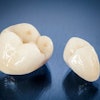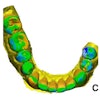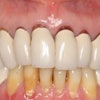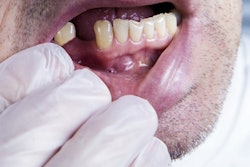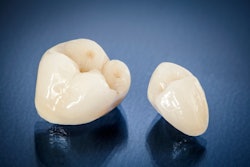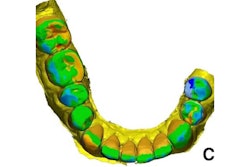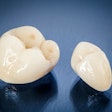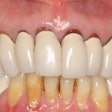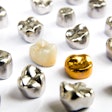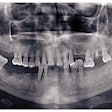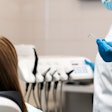There may be good news for patients who consistently wear dental prosthetics. Doing so may be associated with an increased likelihood of survival, according to a large Japanese study published on June 6 in the Journal of Prosthetic Dentistry.
Furthermore, this link was greater among those with fewer natural teeth, the authors wrote.
“Providing dental prostheses may mitigate the effect of tooth loss on mortality,” wrote the authors, led by Dr. Yusuke Matsuyama, PhD, an associate professor with the department of dental public health at the Institute of Science Tokyo.
Tooth loss has been linked to a heightened risk of mortality, and using a dental prosthesis may ease the effect by restoring the ability to chew. Though past research has explored dental prosthesis use at baseline, this prospective cohort study considered changes during follow-up appointments, according to the study.
To explore the correlation between dental prosthesis use as a time-varying exposure and mortality in older adults in Japan, data from the Japan Gerontological Evaluation Study were used. The study included 47,698 adults age 65 and older.
In 2013, the baseline survey was conducted, and all-cause mortality data of participants up to 2022 were obtained from the local municipality database. The analysis was conducted on all participants, including those with fewer than 20 natural teeth and those with fewer than 10 teeth. Survival probability was estimated using machine learning and controlling for covariates.
Of the participants, 19% died during follow-up, and nearly 56% used dental prostheses at baseline.
Continuous-use dental prosthesis was linked to a 3.9 percentage point lower mortality over nine years in older Japanese adults. Furthermore, the mortality rate was higher for patients who wore dental prostheses (20%) versus those who didn’t wear them (16%), the authors wrote.
Additionally, greater associations were revealed for those with fewer than 10 natural teeth (average treatment effect = 10 percentage points; 95% confidence interval, -0.6 to 20.6), they wrote.
However, the study was not without limitations, including that the exposure and cofounders were assessed using self-reported questionnaires, the authors wrote.
In the future, studies should explore the underlying mechanisms and confirm the results in other populations, they wrote.
“Dental prosthesis use is associated with a reduced risk of all-cause mortality in older adults after accounting for the time-varying nature of dental prosthesis use and relevant confounders,” Matsuyama and colleagues wrote.


